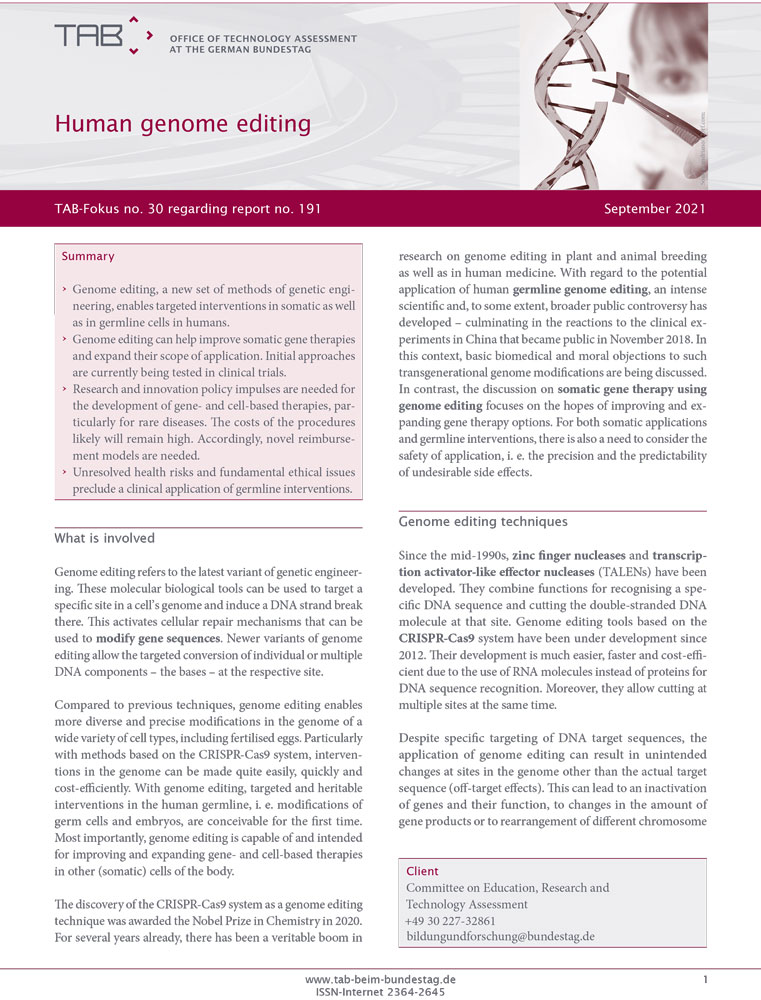Human genome editing - hopes or hubris?
Genome editing refers to the latest variant of genetic engineering, including the CRISPR-Cas9 tool, the discovery of which was awarded a Nobel Prize in 2020. The application of genome editing in humans raises hopes for new medical therapies. But possible heritable interventions in the human germline also pose fundamental ethical questions. The new TAB report (TAB-Arbeitsbericht Nr. 191) provides an up-to-date interdisciplinary overview of the broad debate on human genome editing. The policy brief TAB-Fokus no. 30 features the key findings.
The genetic modification of the germline was made possible by genome editing in the first place. Germline interventions are at the centre of public debate, although the number of realistic application scenarios is very small and the uncertainty regarding options for their implementation is high. The vast majority of experts do not consider the prerequisites for such interventions to be given, even if some institutions, like the German Ethics Council, do not raise principal objections. If the regulation of research on embryos were to be changed in Germany, this would have to be preceded by a broad societal debate and forming of opinion. At the international level, the observation of research on germline interventions by competent institutions could be worked towards.
Applications in somatic cells, i.e. gene- and cell-based therapies in cells that are not part of the germline, have so far been discussed mainly in specialist circles. First clinical trials have been started. The more targeted insertion of genes into the genome is intended to make the therapies more efficient and safer, moreover, it is theoretically possible to address diseases that cannot be treated with previous gene therapies (e.g. Huntington's disease). However, (in)efficient gene transfer remains a challenge, and unintended damage to the genome (on-target effects at the target site or off-target effects at sites other than the actual target sequence) and immune responses can occur. An issue to consider is also equitable access to gene therapies, as the costs likely will remain high. Accordingly, existing reimbursement models could be supplemented with performance-based models and the effect of innovation incentives on drug development for rare diseases could be investigated more closely. The report also discusses measures to promote research such as public funding, but also granting tax benefits for R&D investments and mega-fund models to finance risky but potentially highly profitable projects.
The policy brief TAB-Fokus no. 30 as well as the full project report published as TAB-Arbeitsbericht Nr. 191 (only in German) are available online.
14.12.2021
Download und weitere Informationen:
- TAB-Fokus no. 30
Human genome editing. TAB-Fokus. - TAB-Arbeitsbericht Nr. 191
Genome Editing am Menschen. Endbericht zum Monitoring. - TAB-Fokus Nr. 30
Genome Editing am Menschen. TAB-Fokus. - Project page Human genome editing

